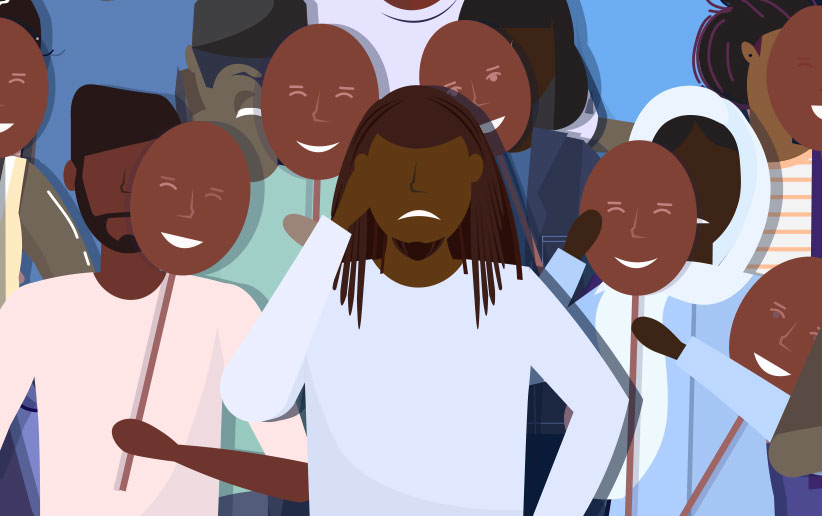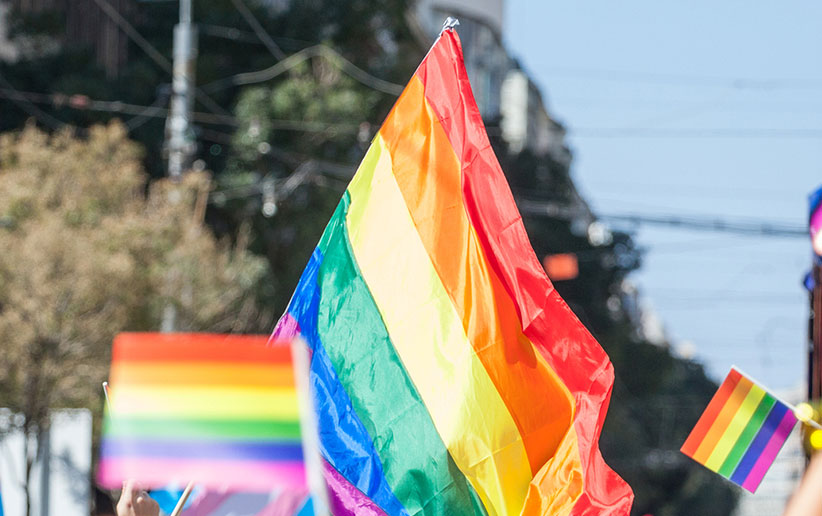Approximately one-third of African American couples in the United States are married. However, research indicates this population tends to experience higher rate of divorce, martial dissatisfaction, and single-parent households, when compared to other racial groups (St. Vil et al., 2019). One may ask, what patterns are we seeing with African American couples that lead to relationship dissatisfaction and dissolution? However, the question must shift focus from problems of the population and look outward to the socioeconomic and psychological constructs imposed by American society.
Clinical work with African American couples should address various culturally sensitive factors such as the chronic exposure to racism, discrimination, and social and cultural expectations of this population. These areas can hinder emotional expression, resulting in negative impacts on romantic relationships. A growing body of literature suggests that empirically supported treatments, such as Emotionally Focused Therapy (EFT), used with diverse populations, can dismantle negative stereotypes around couple work with African American couples and promote harmony within the dyads (Guillory, 2022). Throughout this article, the impact of racial stressors on African American couples will be examined, while addressing these issues through an EFT lens.
Racial and societal impacts on African American couples
Research with couples generally looks at White, middle-class, heterosexual couples, but it does not account for the deeply stigmatized, racial culture perpetuated by the United States. Studies indicate that low-income and ethnically minoritized families tend to have the highest rates of relationship dissatisfaction and dissolution, which can develop problems within the family system (Lavner et al., 2019). In fact, African American couples seem to be most impacted by this phenomenon, as they often note higher rates of relational problems and divorce than any other racial group (Nightingale, 2019; Sun et al., 2019). This may be due to high rates of socioeconomic, contextual, and internal distress as shown through economic and occupation disadvantages that create economic strain and racial discrimination, including higher rates of mass incarceration, resulting in negative perceptions of couple satisfaction between African American dyads (Sun et al., 2019; Umamaheswar & Tadros, 2021). Couples therapy often is tailored to couples with already high levels of relational distress; however, it seems skill-building approaches are stronger in working with African American couples to teach communication skills, fostering intimacy and friendship, and navigating personal differences (Lavner et al., 2019).

Race-based trauma
Race-based trauma is cumulative psychological, emotional, and cognitive distress and infractions experienced by a culture across generations (Williams et al., 2018). For African Americans, this looks like racism and discrimination, whether explicit or implicit, that stems from times of slavery and continues to present day. Explicit racism is seen as systemic racism that still permeates African Americans by limiting access to housing, education, economics, and incarceration due to laws and institutions in place (Umamaheswar & Tadros, 2021). Implicit racism is observed through microaggressions and stereotypes that include intentionally hurtful remarks and invalidation of feelings (Nightingale, 2019).
Racial trauma and race-based stress have been reported to have lasting negative effects on one’s self-worth and self-esteem, but also infiltrates into perceptions of one’s partner. These racial stressors then manifest into couples’ destructive communication (Nightingale et al., 2019). Studies indicate that racism-based stress amplifies already-felt tension and conflicts between African American couples (Lavner et al., 2018), therefore indicating significant impacts on emotional, mental, and relational health.
With race-based trauma comes the perceptions African American couples develop of their significant other. Looking at traditional male and female roles, men are generally emasculated through mass incarceration, racial discrimination, and police brutality. While racism has become more systemic and implicit in nature over the course of history, the messages African American men receive and internalize are the same: you are less than a man. Further, African American men have had to take on a hard, emotionless persona to combat these negative stereotypes. They are viewed as lazy, hypersexual, violent, inherently dangerous, and irresponsible (Nightingale et al., 2019). Despite individuals negating these stereotypes, many African American men still internalize conceptualizations of inferiority. Thus, many African American men have adopted an emotionless stance that may be viewed as avoidant or dismissive (Nightingale et al., 2019).
Implicit racism is observed through microaggressions and stereotypes that include intentionally hurtful remarks and invalidation of feelings.
Given the societal constructs of African American men, African American women have also been given negative stereotypes. Conversely, African American women have also been assigned the persona of a “strong, independent, African American woman,” indicating a lack of necessity for the African American male presence and role. While these phrases are seen on the surface as prideful, they are essentially terms to combat the societal assault of being African American and female (Nightingale et al., 2019). These roles are used to combat emotional concerns and stereotypes, and they hinder the ability of African American women to be vulnerable in relationships (Nightingale et al., 2019). Further, these roles are used as a method of survival—to navigate the race-based trauma they experience—however, it is counterproductive to the success of romantic partnerships.
Impacts on emotional regulation
As previously noted, both African American men and women tend to be restrictive with their emotions; with African American men emotionally detaching, and African American women withholding their vulnerability (Nightingale et al., 2019). Emotional restriction magnifies couples’ ineffective communication and decreases the ability to cope by exacerbating negative perceptions of one’s partner (Lavner et al., 2016). Some couples are unaware of the toll emotional restriction unveils due to racial trauma and may attribute negative interactions to a partner’s deficits (Hardy & Awosan, 2019). While marriage and family therapy is systemic and focuses on the family dynamics and context, it has neglected to understand African American couples and families in their racial and cultural context (Awosan & Opara 2016). Utilizing EFT may bridge the gap by addressing the emotional restriction as a result of race-based trauma.
Emotionally Focused Therapy
Emotionally Focused Therapy (EFT) is an attachment-based approach developed by Sue Johnson that assumes relationship distress is a result of rigid, maladaptive, interactional patterns expressed by couples in response to emotional threats and triggers (Johnson, 2020). EFT looks within and between a couple’s relationship to explore attachment styles and needs, and it posits that individuals who lack secure attachment and have unmet attachment needs develop negative interaction patterns within their relationships in an effort to have those needs met (Johnson 2020). A key feature of EFT is that it is fundamentally process-oriented and evokes change through couples accessing their deeper primary emotions. Therefore, the therapist must work on validation of feelings and experiences with couples to begin understanding and processing those deeper emotions.
>>Coupling within Context: Black Men and Women in Therapy
There are three main facets when utilizing EFT: (a) de-escalate the negative interaction cycle between partners, (b) re-engage the typically withdrawn partner during negative interactions, and (c) soften the way the blaming partner engages in relational interactions (Johnson, 2020; Welch et al., 2019). This work can be monumental in working with African American couples, as it requires both parties to observe their reactions and connect to their emotions. As many African American couples have experienced racial invalidation and stereotypes, working from an EFT lens can foster vulnerability, emotional expression, and empathy between dyads. Since EFT works to increase emotional security, closeness, and connection within couples, dismantling racial stereotypes in relationships can build deeper connections and empathy for African American couples (Nightingale et al., 2019), thus promoting stronger and more satisfactory relationships.
Conclusion
Chronic exposure to racism, emotional restriction, and perception of racial stereotypes creates unique stressors for African Americans, amplifying relational problems (Darabos & Hoyt, 2017; Kaiser et al., 2020). Given that sociohistorical behaviors impose stressors on African American populations, marriage and family therapists (MFTs) can utilize this information to identify the external factors that elicit disconnection and conflict within African American dyads (Hardy & Awosan, 2019; Nightingale et al., 2019). With a more holistic comprehension of the impacts of racial trauma, microaggressions, and acculturation on African American relationships, MFTs can provide more cohesive care to help couples heal from these traumas.
Research has attested to the effectiveness of EFT, but it has been limited to the experiences of White, heterosexual couples (Johnson, 2020; Welch et al., 2019). EFT therapists need a foundation for supporting deeper emotional exploration with African American individuals and tailor the therapeutic experience to each couple’s specific needs. To foster therapeutic trust, MFTs should explore their own racial identity to understand how their own social and racial worldview informs how they understand African American couples (Hemmings & Evans, 2018). Successful alliance with African American couples requires an understanding of the role and stressors race places in therapy (Hardy & Awosan, 2019). MFTs must understand, validate, and normalize the fear of vulnerability with African American couples and conduct deeper work to access those primary emotions (Darabos & Hoyt, 2017; Kaiser et al., 2020). Only then can deeper healing and connectedness flourish between couples while dismantling racial constructs in therapy.
> Please participate in our short survey to help develop our content offerings and resources.

Jennifer R. Young is a PhD Candidate in the Counselor Education and Supervision program at Governors State University. She is a licensed professional counselor with a specialization in Marriage and Family Counseling, associate licensed marriage and family therapist, national certified counselor, and an adjunct at Northeastern Illinois University.

Eman Tadros, PhD, is an AAMFT Professional member holding the Clinical Fellow and Approved Supervisor designations, and is an assistant professor at Syracuse University in the Department of Marriage and Family Therapy. She is a licensed marriage and family therapist, MBTI certified, and the Illinois Family TEAM leader. Her research focuses on incarcerated couples and families.

Alexis Gregorash is a doctoral student in Counselor Education and Supervision at Governors State University. She is a Licensed Professional Counselor, National Certified Counselor, and an adjunct at St. Xavier University.
Awosan, C. I., & Opara, I. (2016). Socioemotional factor: A missing gap in theorizing and studying Black heterosexual coupling processes and relationships. Journal of Black Sexuality and Relationships, 3(2), 25-51. https://doi.org/10.1353/bsr.2016.0027
Darabos, K., & Hoyt, M. A. (2017). Masculine norms about emotionality and social constraints in young and older adult men with cancer. Journal of Behavioral Medicine, 40(2), 259-270. https://doi.org/10.1007/s10865-016-9739-5
Guillory, P. T. (2022). Emotionally focused therapy with African American couples: Love heals. Routledge.
Hardy, K. V., & Awosan C. I. (2019). Therapy with heterosexual Black couples through a racial lens. In M. McGoldrick & K. V. Hardy (eds.), Re-visioning family therapy (pp. 419-432). Guilford.
Hemmings, C., & Evans, A. M. (2018). Identifying and treating race-based trauma in counseling. Journal of Multicultural Counseling and Development, 46, 20-39. https://doi,org/10.1002/jmcd.12090
Johnson, S. M. (2020). The practice of emotionally focused couple therapy: Creating connection. Routledge.
Kaiser, J., Hanschmidt, F., & Kersting, A. (2020). The link between masculinity ideologies and posttraumatic stress: A systematic review and meta-analysis. Psychological Trauma: Theory, Research, Practice, and Policy, 12(6), 599-608. https://doi.org/10.1037/tra0000578
Lavner, J. A., Barton, A. W., & Beach, S. R. H. (2019). Improving couples’ relationship functioning leads to improved coparenting: A randomized controlled trial with rural African American couples. Behavior Therapy, 50(6), 1016-1029. https://doi.org/10.1016/j.beth.2018.12.006
Lavner, J. A., Barton, A. W., Bryant, C. M., & Beach, S. R. H. (2018). Racial discrimination and relationship functioning among African American couples. Journal of Family Psychology, 32(5), 686-691. doi.org/10.1037/fam0000415.supp
Lavner, J.A., Karney, B. R., & Bradbury, T. N. (2016). Does couples’ communication predict marital satisfaction, or does marital satisfaction predict communication? Journal of Marriage and Family, 78(3), 680-694. https://doi.org/10.1111/jomf.12301
Nightingale, M., Awosan, C. I., & Stavrianopoulos, K. (2019). Emotionally focused therapy: A culturally sensitive approach for African American heterosexual couples. Journal of Family Psychotherapy, 30(3), 221-244. https://doi.org/10.1080/08975353.2019.1666497
St. Vil, N. M., St. Vil, C., & Fairfax, C. N. (2019). Posttraumatic slave syndrome, the patriarchal nuclear family structure, and African American male-female relationships. Social Work, 64(2), 139-146. https://doi.org/10/1093/sw/swz002
Sun, X., McHale, S. M., & Crouter, A. C. (2020). Perceived underemployment and couple relationships among African American parents: A dyadic approach. Cultural Diversity and Ethnic Minority Psychology, 26(1), 82–91. https://doi.org/10.1037/cdp0000285
Umamaheswar, J. & Tadros, E. (2021). Anybody can be father, but not anybody can be a dad: Fathering and the intergenerational transmission of masculinity among incarcerated men. Crime & Delinquency. https://doi.org/10.1177/00111287211047531
Welch, T. S., Lachmar, E. M., Leija, S. G., Easley, T., Blow, A. J., & Wittenborn, A. K. (2019). Establishing safety in Emotionally Focused Couple Therapy: A single-case process study. Journal of Marital & Family Therapy, 45(4), 621-634. https://doi.org/10.1111/jmft.12398
Williams, W. K. N., & Mills, C. P. (2018). African American historical trauma: Creating and inclusive measure. Journal of Multicultural Counseling & Development, 46(2), 246-263. https://doi.org/10/1002/jmcd.12113
Other articles
Helping Black Women Heal Through a Womanist Mental Health and Healing Framework
What does mental well-being and healing look like for black women? How do we as clinicians support the mental health and healing of strong black women? I posture that a Womanist Mental Health and Healing Framework (Melton, 2022) can uniquely address these critical questions. Clinical psychologist Carmen B. Williams (2005) argues that “Womanism offers a model that addresses the simultaneity of cultural oppressions experienced by African American women. It is a model in which race, class, gender, and sexual orientation are understood as interactive, not fragmented, in women’s lives.”
Melanie Melton, MA
Smile Through the Pain: The Complexities of Narratives about Mental Health in the Black Community
The perception of mental health in the Black community is multifaceted. There are systemic challenges related to mental health that continue to stand as a barrier to receiving mental health services. Some of these barriers include accessibility of culturally competent providers, cost and/or lack of insurance to see a provider, and historical and present discriminatory practices by mental health professionals that heightened distrust of medical and even psychological communities.
Denise Williams, PhD
Creating Systemic Change Through a Social Justice Lens: Steps to Make Impactful Changes
Social justice is an evolving topic in marriage and family therapy (MFT) as the profession seeks to create this outcome in their clients’ lives and the systems in which they work. Many feel that creating systemic change is our work’s goal and responsibility.
M. Evan Thomas, PhD & Lauren Pittman, MMFT




